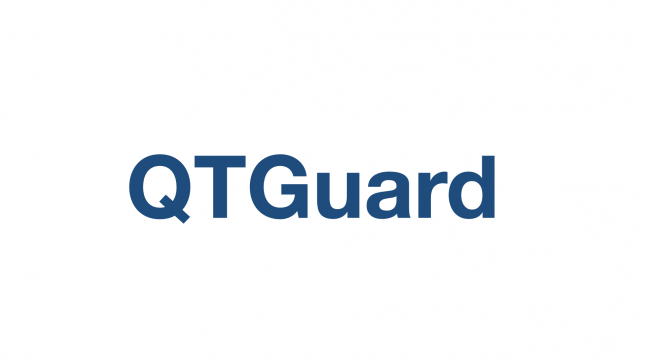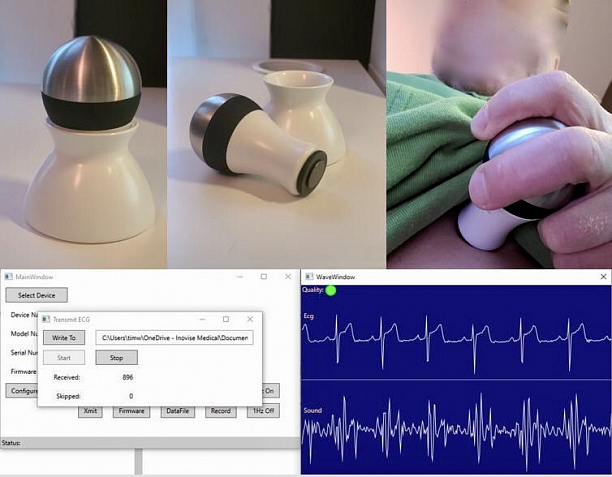

46387
REMmedy
Automatic, analytics of heart QT, rhythm and sounds.
USA, Vermont
Market: Medicine
Stage of the project: Prototype or product is ready
Date of last change: 19.06.2020
USA, Vermont
Market: Medicine
Stage of the project: Prototype or product is ready
Date of last change: 19.06.2020
Idea
AI driven, hand held, automatic, autonomous screening of QTinterval, arrhythmia and heart sounds in 30 seconds. For around $100. No training required. 1. Safety, Convenience and Reassurance for patients on QT prolonging drugs, and their prescribing physicians. Heart disease screening by untrained operators in underserved and remote areas. Rapid cardiac screen in clinic or hospital without EKG or operator. QT monitoring during new drug trials.
Current Status
Teams in place. Working prototype built. Started discussions with institutions and companies about implementation of device in field.
Market
For use in hospitalized patients on QT prolonging drugs with no need for EKG machine or operator. Nurse or patient can perform as easily as taking a temperature or blood pressure.
Home patients can perform self monitoring while on QT prolonging drugs to to increase safety, convenience, reassure the patient and reduce cost. Over 200 drugs (not including combinations) can induce arrhythmias secondary to QT prolongation.
All new drug studies are now mandated to monitor QT interval. Because EKG is the only method, it adds to costs and inconvenience. QTGuard would
be in the position to become the standard of care in QT monitoring during for new drug studies.
Allows rapid, non-intrusive cardiac screen in clinics.
Low cost, Cardiac screening in underserved areas and populations
Home patients can perform self monitoring while on QT prolonging drugs to to increase safety, convenience, reassure the patient and reduce cost. Over 200 drugs (not including combinations) can induce arrhythmias secondary to QT prolongation.
All new drug studies are now mandated to monitor QT interval. Because EKG is the only method, it adds to costs and inconvenience. QTGuard would
be in the position to become the standard of care in QT monitoring during for new drug studies.
Allows rapid, non-intrusive cardiac screen in clinics.
Low cost, Cardiac screening in underserved areas and populations
Problem or Opportunity
1. There is no simple system to screen and monitor patient’s heart function, including QT interval while on drugs with potentially lethal adverse effects on the heart (Arrhythmias). This came to forefront with the use of Hydroxychloroquine in COVID19 but is true for over 200 other drugs.
2. Much heart disease is not diagnosed in a timely manner due to the inconvenience and cost of current screening technology.
3. Drug trials are now mandated to monitor QT intervals, the need for EKG adds significantly to the cost of performing trials.
4. Most of the world's population does not have access to basic cardiac evaluations.
2. Much heart disease is not diagnosed in a timely manner due to the inconvenience and cost of current screening technology.
3. Drug trials are now mandated to monitor QT intervals, the need for EKG adds significantly to the cost of performing trials.
4. Most of the world's population does not have access to basic cardiac evaluations.
Solution (product or service)
AI driven, automatic, autonomous, accurate, simple, hand held device suitable for screening and monitoring of the QT interval, arrhythmia and abnormal heart sounds. Simple enough to use without training, suitable for operator performed or self monitoring. Fast enough not to prolong a medical check up. Significantly reduced the need to order EKGs on hospitalized patients in non-monitored beds. Eliminates/reduces need for EKGs on patients in drug trials.
Allows untrained operators to screen large populations in remote and underserved areas.
Allows untrained operators to screen large populations in remote and underserved areas.
Competitors
AliveCor: small, hand held, consumer device. On demand. Smart phone connected sends EKG to remote site for QT measurement. Device certified for 6 lead QT measurement.
BioTelemetry: Remote monitoring patch. Worn continuously transmitting EKG to remote site for analysis.
BioTelemetry: Remote monitoring patch. Worn continuously transmitting EKG to remote site for analysis.
Advantages or differentiators
AliveCor: $149. Remote monitoring with delay of results. Delayed actionable information. 6 lead reading requires two hand and left knee or ankle. Not very suitable for stiff, elderly or those in bed. Multistep set up process. Needs internet connection.
BioTelemetry: Doctor's visit required. Prescription required. Set up required. Remote monitoring with delay of results. Must wear adhesive, intrusive sensor. Delayed actionable information. Internet required.
QTGuard: No Prescription required. Easy set up. Patient or operator performed. On-demand, Instantly available actionable information. $100, 30 seconds. No internet required.
Performing a 30 second test (nurse or patient in office), a physician can decide if a drug is safe for the patient and upcode the billing by an average of $33-$35 due to increased complexity of visit. The same can be said of telemedicine visit involving a discussion of QT interval (self performed by patient). This is a very good return in terms of clinically actionable data, patient safety and cost/benefit analysis.
BioTelemetry: Doctor's visit required. Prescription required. Set up required. Remote monitoring with delay of results. Must wear adhesive, intrusive sensor. Delayed actionable information. Internet required.
QTGuard: No Prescription required. Easy set up. Patient or operator performed. On-demand, Instantly available actionable information. $100, 30 seconds. No internet required.
Performing a 30 second test (nurse or patient in office), a physician can decide if a drug is safe for the patient and upcode the billing by an average of $33-$35 due to increased complexity of visit. The same can be said of telemedicine visit involving a discussion of QT interval (self performed by patient). This is a very good return in terms of clinically actionable data, patient safety and cost/benefit analysis.
Finance
Looking for $1,400,000 to complete R&D, validate and go through the FDA fast track applications/certification process.
Initially devices will be sold to major medical equipment distributors (to pharmacies and hospitals) and via Amazon. Retail cost around $100. Landed cost $25.
Initially devices will be sold to major medical equipment distributors (to pharmacies and hospitals) and via Amazon. Retail cost around $100. Landed cost $25.
Business model
B2B2C, B2B
Money will be spent on
- Completion of R&D
- validation
- patent application
- FDA submission
- legal
- Development of strategy: manufacturing, logistics, distributions, marketing, recruiting.
- validation
- patent application
- FDA submission
- legal
- Development of strategy: manufacturing, logistics, distributions, marketing, recruiting.
Offer for investor
We are flexible in seeking debt financing, SAFE or convertible note.
Team or Management
Risks
Fast developing field. Competing devices may enter the market. Need to create a path to educate physicians and users to the availability and advantages of the device. Need for find efficient distribution networks and path to drug study management company.
Incubation/Acceleration programs accomplishment
Not applicable. 6 week old product.
Won the competition and other awards
Not applicable for this product. REMmmedy's first public presence at any venue in October 2019, Amsterdam, World Summit AI 19. We were the top 5 finalists (from over 100 entries) in a start-up challenge for our AI driven scent triggered system for management of Situational Insomnia (business travelers, shift worker, pilots, students). Write up in Venturebeat.
Photos

Presentation
Sign in/Sign up